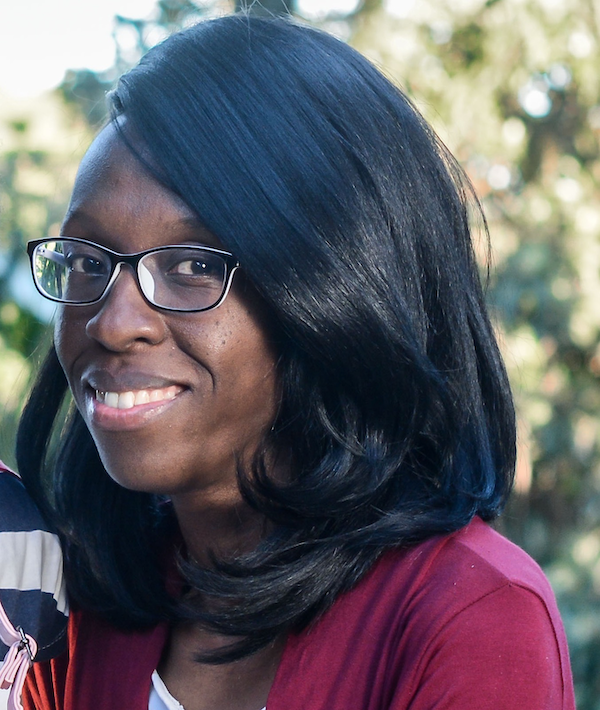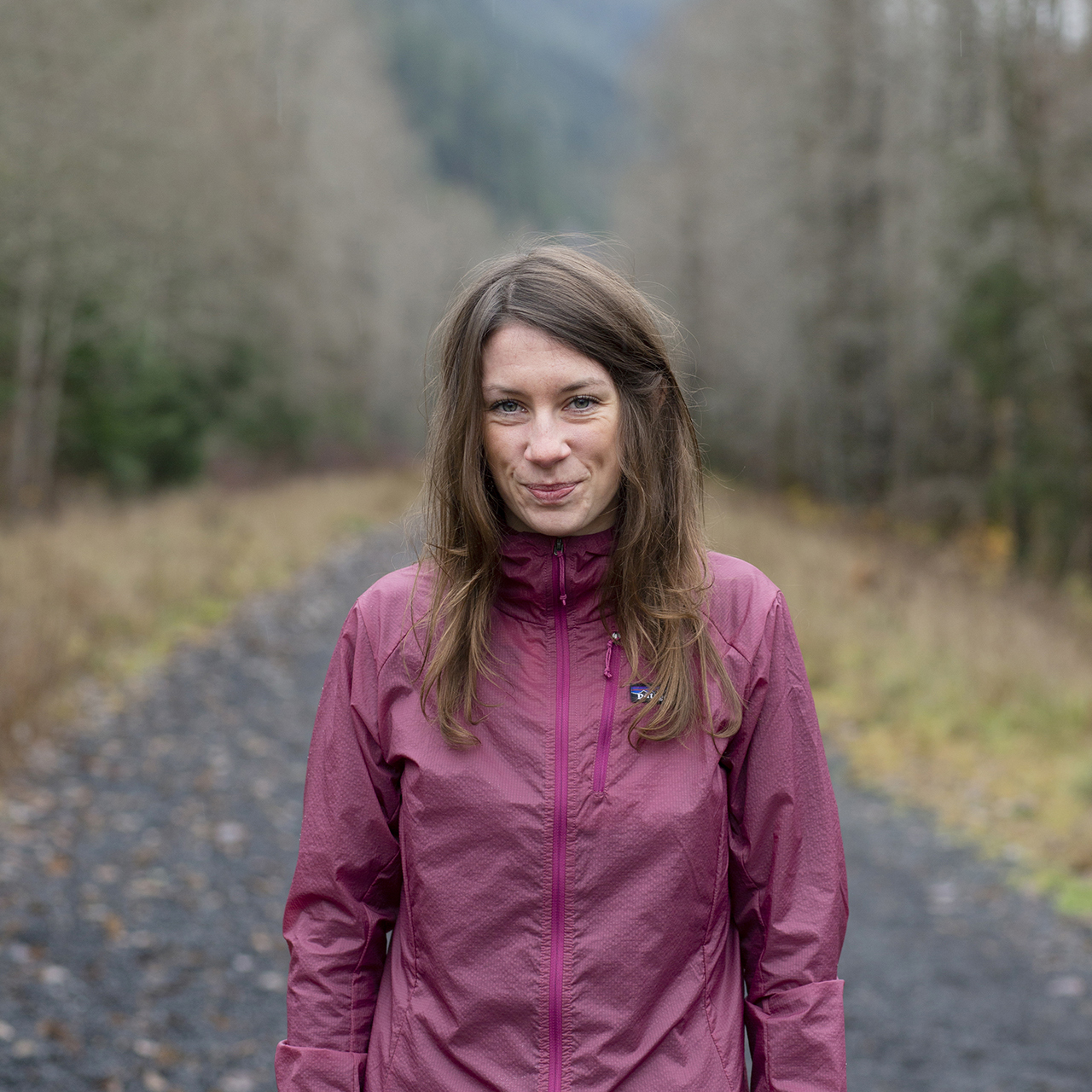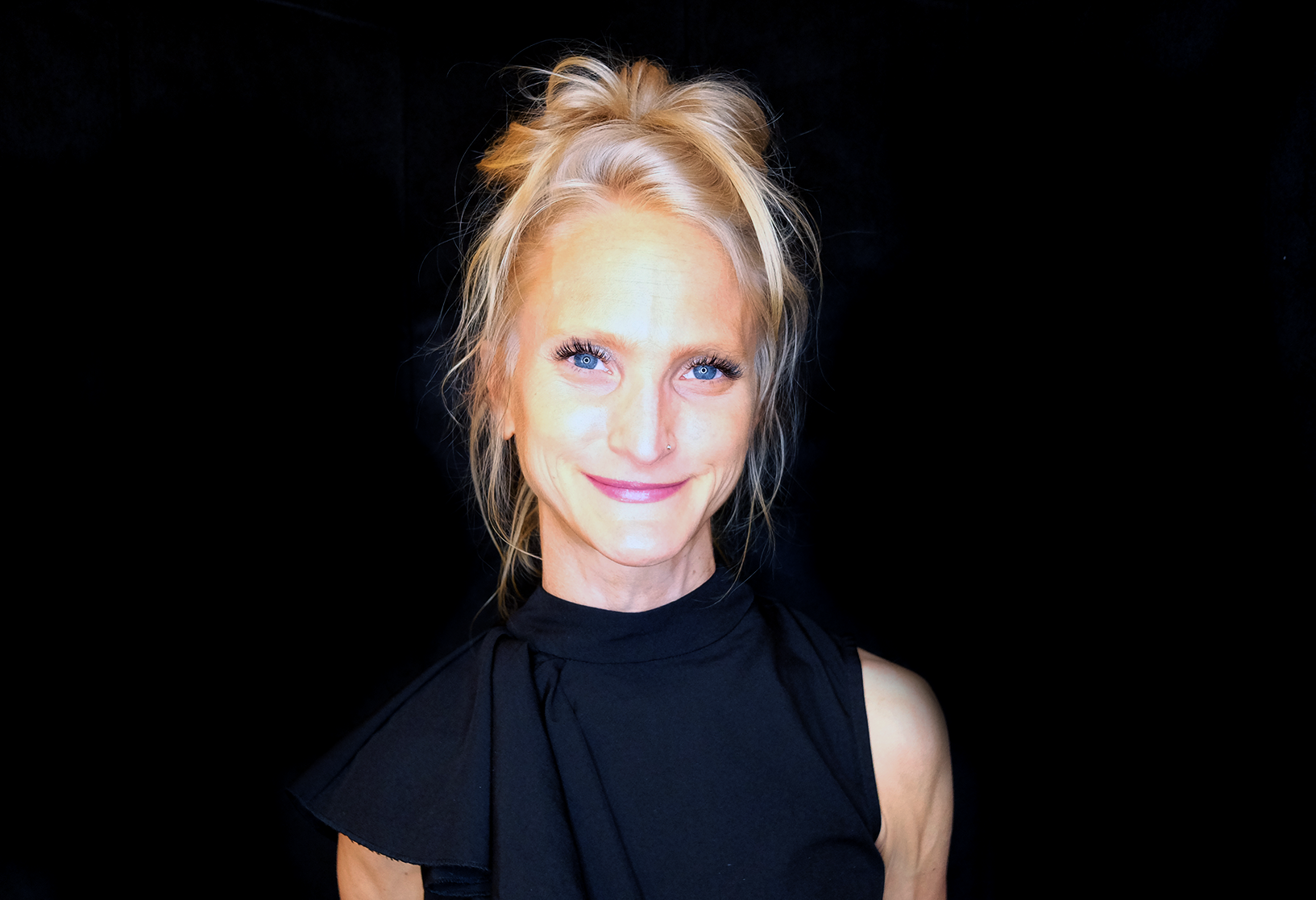Husband-and-wife team Fern Diaz and Matt Kagen started their first podcast together in 2017. Matt is a playwright and theater producer, so naturally, they focused on people in that world. The Quickening asked a series of theater professionals “What was it like making your first show in New York?”
Then, in early 2020, Matt began collaborating on an Audible Original called Six Sermons with his friend Asa Merritt. But of course, it—and everything—was put on hold by the pandemic. At home, isolated, Fern and Matt started working on a new project: a fictional audio piece called Five Conversations Before Sleep. It’s a series of intimate conversations between two people in a relationship at various milestones. The first episode depicts the conversation after a random hookup.
Five Conversations—or, as Fern and Matt often shorthand it, 5C—was an official selection at the Tribeca Festival this year. Matt also runs First Rodeo, a writing and producing studio devoted to creating boundary-pushing audio fiction.
We chatted with Matt and Fern about what podcasters can learn from theater, the power of smaller audiences, and how they balance life and work as a married creative team. This interview has been edited and condensed for length and clarity.

Your first podcast was an interview show. Do either of you have any formal training as interviewers?
Fern: I'm somewhat shameless about talking to people. Conversation is my favorite thing. For me, when I’m interviewing someone, it’s the responsibility of having a good conversation.
I grew up wanting to be a journalist and reading The New Yorker: people who asked the right questions about what the world was really like. I think you can do that with basically anything—it doesn’t have to be war reporting, though shout out to war reporters.
5C is about the art of conversation. We did this panel after our Tribeca thing, and the panelists were the New Yorker critics at large, so it was Alexandra Schwartz and Vincent Cunningham and Naomi Fry. They were like, “Wait, so in your show, these people just had sex. How do they not know each other?” Sexual intimacy is sometimes easier than talking.
Matt and I are so different. He’s a writer, and I love interviewing and chatting and talking. That’s reflected in the piece in a fun way. It's meta, and I think some people are surprised that we went there. I feel like meta stuff is not that popular anymore.
Everyone wants a soap opera.
Fern: Yeah. And like, I love a soap opera, but there's other ways to tell a story.
In 5C, the characters don't have names. You don't find out what their job is. You don't know where they've been or where they're going. It's just about that moment.
How did you decide on that as a style?
Matt: When I came to audio fiction, it seemed like it was somewhere between playwriting and prose writing. There's a lot of mystery: you present a very ordinary situation and because you can't see it, it inherently is mysterious.
The push with audio fiction has always been for these big blockbuster Hollywood stories, but actually what's fascinating to listen to is something very small. That's what drew me in, as someone who proudly tells fairly small stories—plot-challenged stories, if you will. The characters can really come alive in audio if you have a patient listener. We're so saturated with visual media. I think there's a freshness to knowing less, maybe.
I love finding real sounds. The world is so fascinating. Five Conversations, we did a lot of like, rustling of sheets, and drinking water with ice.
For Six Sermons, we went to Ohio. We had a community theater sit in for a church congregation and recorded their live interactions. We went to a bowling alley, and we did all this on-location field recording, which was so cool, when you can mix that in with professional actors.
Fern: When Matt says, “We went to Ohio,” it's like the most exciting/least exciting thing. Because in audio fiction, usually you've got performers in a closet, and then an audio Foley editor in their closet, doing Foley. And we went to Ohio and got the cicadas, and the airport sounds, and the church congregation.
I was looking back on my notes about Five Conversations and I was like, how do we make the actors feel and sound like they've just had sex, but, you know, not in a weird way? So I had them do jumping jacks for 30 seconds to a minute before every take, so they would feel a little bit winded. Audio, and the mystery of not being able to see people, as Matt said, allows you to do so many interesting and beautiful things, intimate, small things that feel big.
It must have been really interesting to work on Six Sermons with Audible and have a budget and a team, and then do something as independent as 5C.
Fern: I didn't work on both shows, but I did see the way Matt worked on both shows. And with 5C, it was the most amazing freedom to not care what anybody thought about what we're making.
I reread the journal that I was writing as we were working, and I was writing a note that said, We're gonna work on this script. We're gonna develop it; we're gonna find actors who can help us bring it to life. And then I wrote down, if we tape it, we tape it. No one was waiting for the tape.
Matt: Making Six Sermons was really fun. The creative aspects of the hiring—getting to hire your dream theater director. It was the largest budget that I've ever worked with, and it was just so cool to be able to imagine something and then have your best possible chance to make what you have in your mind.
And of course there are major challenges that result when talented people are pressed for time and budgets get tight. I've learned that even the largest budget that you've ever worked with inevitably becomes too small, because your expectations for what you can do expand. You always grow to the size of your box.
There’s also a lot that comes along with your art being your job. Can you talk about how you navigate being creative in different parts of your life?
Matt: Fern runs a creative studio. We also do a lot of work with companies, and on branding projects. Fern's a very talented strategist, and I write copy for those projects.
I don't know if we'll ever have the budget to make another audio show like Six Sermons. Immediately after Six Sermons, we were like, Oh, fantastic. But progression isn't always like that. You make a big budget show, then you go back to making independent work. You try to learn whatever you can, wherever you are, and enjoy it, hopefully.
Fern: As far back as I can remember, I was really interested in how the world works, and reading whenever I could, and asking questions. Which I think led to me being like, Well, the way the world works is that there are only a very tiny number of artists that make a living. And then there are many, many artists that struggle to live, because the way that the system is designed does not support them. So I was like, I need a job. And then I met Matt and I was like, “Oh my god. You're an artist! You're a poet. You're a writer.”
It was like, well, if we're partners, maybe we can build something greater than our individual goals and dreams. I want to understand how the world works; you want to create things that are beautiful and moving and weird, and make people feel less alone.
I have a difficult time divorcing success from professional validation. My friends who are artists—including Matt—are like, when you create, it's not about that. It's actually not about succeeding or failing, or having people like what you do. It's just about the pleasure of doing it. That has been a very big learning for me, and something that I still struggle with.
Putting out 5C has been an exercise in being okay with the fact that we don't know who will ever interact with it. We also choose not to be super crazy marketers about the stuff that we do.
You’re the first married couple I've interviewed for this series. How do you deal with being partners in all areas of your life?
Fern: We both just read Miranda July’s book All Fours. The main character talks about how she and her husband don’t bring work home. Like, they don't know what each other is working on in terms of their projects, which is pretty much the opposite of us. Our work is our life and our life is our work, and our work reflects our life and our life reflects our work.
My mom's a therapist and she always talks about how people are really good at compartmentalizing stuff. I feel like we're the opposite. We don't have compartments. 5C is about a couple and it has definite influences from us as characters. That was wonderful and therapeutic and amazing. It’s like a weird form of therapy to make work that's inspired by things that you've gone through. And then to do it together, it’s awesome.
Matt: We made this show during the pandemic. The world sort of went away and we made this very particular show that I don't know if we can make again. Because we were just in our apartment together, all day every day. We stopped drinking, we started cooking and got very militaristic about our habits.
I think boundaries are definitely important. Every relationship has its way that it properly functions and you need to tend to that, even when your relationship has like four different parts that are going and flowing into and out of each other.
Fern: I'm glad you said that. I mean, it's not all sunshine and rainbows. At first, we tried to teach ourselves a very complicated audio editing software to make this show, and our differences, our lack of patience with each other—it was bad! And it was really scary to be like, oh no, is this gonna be a barrier to us making work together?
There’s a phrase I think I heard once that’s like, “you shouldn't renovate a house until you've been married for 10 years” or something. There's no phrase equivalent for making a creative project together, but I'm sure it's like 20 years, because you really have to know each other well.
But at the same time, I would probably be like, you should make a creative project together within a year of being together because it will accelerate your understanding of each other.
You mentioned struggling to learn to edit audio. Talk to me about the technical aspects of making your shows.
Matt: We recorded The Quickening and Five Conversations at recording studios. That was really freeing—we didn't have to worry about the levels and stuff like that.
We had dabbled in Audacity. ProTools is the industry standard. I have great respect for anyone who masters ProTools. I don't ever think I will, in part because of the wonder that is Descript, which I absolutely adore. It’s actually encouraged me to record some music, which is a totally new thing in the last few months.
We used Descript to cut a trailer for Five Conversations for the Tribeca Festival. Fern's brother is a brilliant filmmaker, and he recorded a blue hour sunset. We put subtitles of the audio on the sunset, so the color shifted in time with the short clip.
I was just like, I love this. This is so intuitive for me. I get very anxious with new technologies that require me to think a lot. I just want to be in flow. And Descript really made sense to me. For someone who's not really a technical brain, it was a real breakthrough for me.
Fern: The dialogue we used has a lot of pauses. Usually with captioning software, everything shows up on the screen at once. You know how when you're watching a movie and you have closed captioning, the joke can get given away?
With Descript, we were able to time it to make sure that the captions were so synced up with the dialogue that you were never reading it before you were hearing it. That was the best part. I don't have a clue how we would have done that without Descript.
It was a game changer for us at Tribeca. We were all asked to create a piece of content for audio, and you're like, man, we make audio. We don't make other stuff. But because of Descript we were able to make exactly what we wanted.
Audio doesn't ever really get to be communal. It was very cool to create something for a lot of people to experience all at the same time.
How do you think about finding an audience for your work?
Matt: I've been thinking a lot about how we undervalue small audiences. That could just be a little bit of sour grapes—it's like, if you don't have a huge audience, of course you’re cool with a small audience.
But some of the most meaningful entertainment experiences I've had have been with a very small group of people. Whether it's a concert where you're crammed into a little space with a hundred people, or whether it's a little reading with 20 people or whatever. I think as an artist, making an impact on a small group of people is actually really meaningful. And I think that gets lost in our quest to be seen and known by a large group.
What’s your advice for beginning podcasters?
Fern: The world of fiction podcasts is so fresh and nascent that you don't have to do what other people have done. In a lot of super established industries, you're being measured against the last thing that was successful or the last thing that got a good review. Whereas this is a strange new open land, where you can try anything, and do it on your phone. iPhone, Descript, Twitter: you're good.
The internet has given us real-time, 24/7, voyeuristic entertainment with, like, Mormon families. But it’s also given us tiny little weird stuff that you used to have to be in the Lower East Side to be able to experience. Now you can access it whenever and wherever, as long as people make it.
Matt: People say this a lot about indie theater, indie film, but you actually don't need that much money to make a really compelling podcast. I think that's maybe the most true for audio.
There's something about lo-fi audio that comes alive, that makes the art form feel vital. I have a friend who's an audio fiction creator, Zander Adell. He basically did like an entire show himself, just with a few actors. It’s called Celeritas. He evokes an action hero in just the confines of his room. It’s a beautiful show and I think it illustrates how you can bring an idea to life.
I mean, it takes a lot of time, and probably more money than you want it to. But the real thing that you need is bravery.






%20(1).JPG)
























